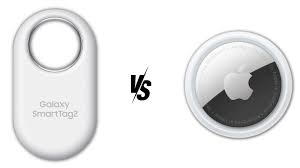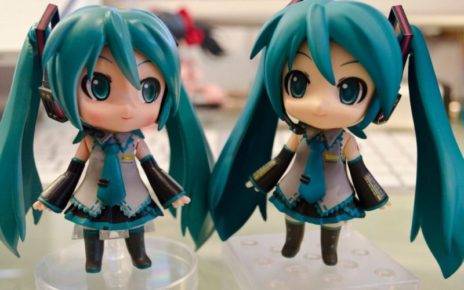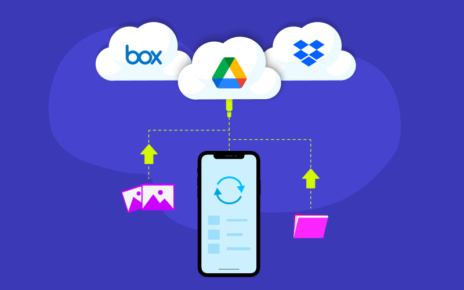When comparing the Samsung Galaxy SmartTag 2 and Apple AirTag, the decision often hinges on whether you’re an Android or Apple user. But putting aside brand loyalties, let’s focus on the technology, features, specifications, and price to see which tracker stands out in 2024.
Key Takeaways
Both Apple AirTag and Samsung SmartTag 2 are limited to their ecosystems. The AirTag relies on Apple’s vast network of devices for locating lost items, while the SmartTag 2 integrates with Samsung’s SmartThings for additional smart home functionalities. Both trackers have distinct features that may sway a potential buyer’s decision based on their specific needs and smartphone ecosystem.
SmartTag 2 vs AirTag: Features
Samsung SmartTag 2
The SmartTag 2 has improved significantly from its predecessor, offering better functionality and integration with Samsung’s SmartThings Find network. It’s an excellent choice for those already embedded in Samsung’s ecosystem, providing the added benefit of acting as a remote control for smart home devices—though this feature appeals to a niche audience. However, a significant downside is its exclusivity to Samsung phones, limiting its usability for those with other Android devices.
Apple AirTag
Since its launch three years ago, Apple’s AirTag has become a popular choice for tracking items. Leveraging Apple’s vast network of iPhones, AirTags offer robust out-of-network finding capabilities and separation alerts. However, like the SmartTag 2, the AirTag is also tied to its ecosystem, compatible only with iPhones. This may change in the future, as regulatory changes in Europe could potentially enable cross-platform tracking.
Verdict: The SmartTag 2 edges out slightly due to its added functionality with Samsung’s smart home ecosystem, but only if you’re a Samsung user.
SmartTag 2 vs AirTag: Design
SmartTag 2
The SmartTag 2 adopts a unique pill-shaped design, available in black or white, and weighs less than half an ounce. A key feature is its built-in metal loop, allowing easy attachment to key rings without needing additional accessories.
Apple AirTag
The AirTag’s design is typical of Apple’s aesthetics, with a sleek, circular shape and polished stainless steel back. However, it lacks a built-in attachment hole, requiring users to purchase a separate keyring or holder—adding to the cost and somewhat detracting from its otherwise minimalist appeal.
Verdict: The SmartTag 2 wins for practicality with its integrated keyring hole, eliminating the need for extra accessories.
SmartTag 2 vs AirTag: Battery Life and Technology
Both trackers are more alike than they are different, boasting Bluetooth LE, Ultra Wideband, NFC, and an IP67 water resistance rating. The AirTag has a replaceable CR2032 battery, offering about 12 months of use. Meanwhile, the SmartTag 2 claims a battery life of up to 500 days, extendable to 700 days in power-saving mode.
Verdict: While both devices perform well, the SmartTag 2’s longer battery life gives it a slight advantage.
SmartTag 2 vs AirTag: Price
Apple AirTag
Priced at $29, the AirTag is often available at discounts, especially when buying a four-pack for $99. Given its longer time on the market, it’s also frequently discounted online.
Samsung SmartTag 2
The SmartTag 2 has a comparable price tag of $30, with occasional discounts available through various retailers.
Verdict: The AirTag wins on price, thanks to more frequent discounts and promotional offers.
Overall Winner
While both trackers offer reliable features and are tightly integrated into their respective ecosystems, the Galaxy SmartTag 2 has the edge in battery life and smart home integration. For Android users, particularly those in the Samsung ecosystem, the SmartTag 2 is a better choice. For iPhone users, the AirTag remains the go-to tracker.
For Those Outside the Ecosystem
For users not locked into Apple or Samsung, other trackers like Tile or Chipolo provide more versatile options. These trackers offer cross-platform compatibility, making them suitable for a broader audience.
The Bottom Line
Ultimately, choosing between the SmartTag 2 and AirTag comes down to which ecosystem you prefer. Both are excellent at what they do, but their compatibility restrictions make them less appealing to those not already invested in their respective brand. If you’re looking for a versatile tracker that fits your daily life without additional ecosystem commitments, exploring options like Tile may be the way to go.
Apple and Samsung could benefit from seeing beyond their walled gardens to provide more inclusive solutions.





